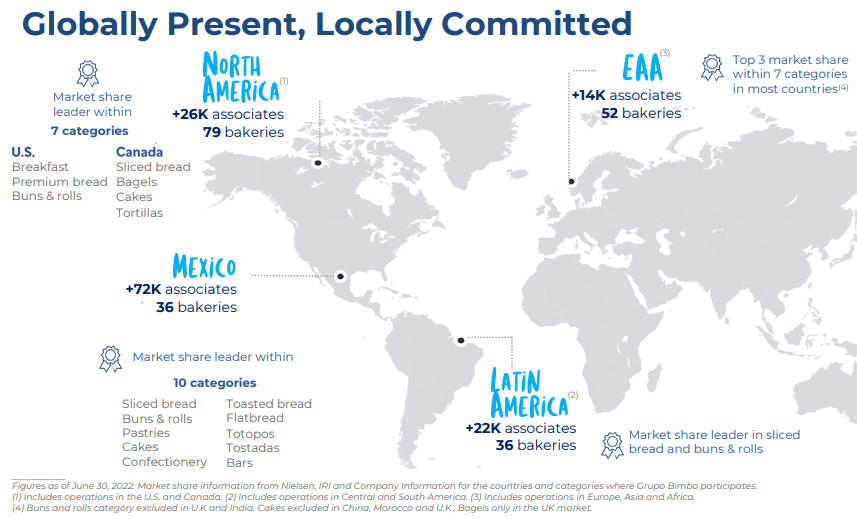Grupo Bimbo, a bakery-focused company with more than 54,000 distribution routes worldwide, achieves high levels of efficiency in transportation and logistics.
In this area, the company has an extensive world-class distribution network and strategically located automated production plants.
Another way of looking at this quality: global reach combined with a strong local presence allows Grupo Bimbo to guarantee the highest quality and freshness of its products.

In its own words, the company maintains what it considers to be an «efficient and sophisticated» logistics operation to meet distribution requirements throughout the markets in which it participates. Its «agile» distribution and manufacturing network allows it the flexibility to reconfigure in the face of increased demand.
For example, since the onset of the Covid-19 pandemic, Grupo Bimbo was able to adjust its routes and production lines, and reopen a production plant in the United States to meet extraordinary consumer demand.
More figures to size up the company? Its distribution network enables it to deliver its products to more than 3 million points of sale every day to meet the needs of all types of consumers, such as supermarkets, family businesses, fast food channels, among others.
Thus, the fleet travels on average the equivalent of 126 trips around the world daily.
Grupo Bimbo
Alliances are essential for the development of strategies that give value to materials and make recycling attractive, so the company’s operations encourage participation in post-consumer programs.
For example, in Mexico during 2021, and after several years of testing, the first circular economy exercise was achieved in alliance with the Ecology and Business Commitment Association (ECOCE) and its supplier Freher, developing recycled plastic pallets.
These pallets are used for the logistics of Grupo Bimbo products in different work centers nationwide.
For the creation of the pallets, 20% post-consumer plastic wrapping is used and the other 80% of its composition is made of recovered hard plastic.
The company’s success depends in part on its ability to be a low-cost producer in a highly competitive industry.
![]()

